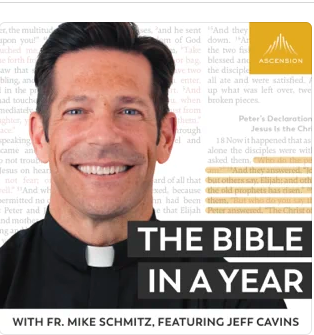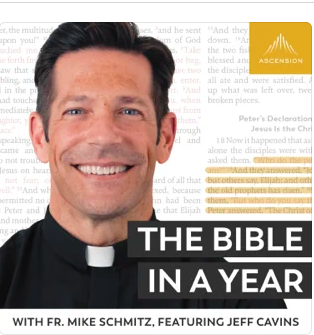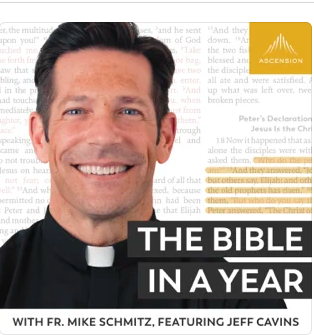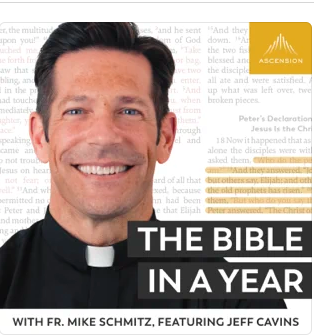
Daily Catholic Wisdom – To Live Well


416 N 2nd St, Albemarle NC 28001 | (704) 982-2910



In the last chapters of 1 Samuel, Fr. Mike focuses on David’s wisdom in battle through his prayer and ability to unite the people of Israel. He also touches on Psalm 18 and how wonderful things can happen once we allow ourselves to be loved by God. Today’s readings are 1 Samuel 29-31 and Psalm 18.
Click on the link:
https://bibleinayear.fireside.fm/day-119


The Bible in a Year with Fr. Mike Schmitz – Day 151: Wisdom and Folly. Fr. Mike delves deeper into the lessons Ecclesiastes teaches us today about living wisely by keeping the end in mind, enjoying the present moment, and not worrying too much about other people’s opinions of us. Today’s readings are 1 Kings 9, Ecclesiastes 6-7, and Psalm 7. Please note: The Bible contains adult themes that may not be suitable for children – parental discretion is advised.


Fr. Mike concludes the book of Sirach today and encourages us to continue the pursuit of wisdom. In our reading of 2 Maccabees, we see again the pillage of the Temple and we are re- introduced to Judas Maccabeus. Lastly, in Proverbs Fr. Mike encourages us to resist the temptation to rejoice when our enemies fall. Today’s readings are 2 Maccabees 5, Sirach 50-51, and Proverbs 24:17-20.
Click on link: https://youtu.be/b8Em54ORKIE


Fr. Mike offers a recap of Eleazar’s martyrdom and marvels at Eleazar’s courage to avoid both sin, and the temptation to lead others into sin. As we begin reading the book of Wisdom today, we also learn three valuable lessons; God did not create death, death entered the world through sin, and we are wise when we walk in the truth but foolish when we walk in evil. Today’s readings are 2 Maccabees 6, Wisdom 1-2, and Proverbs 24:21-26.
Click on link: https://youtu.be/OFK9e6V0kHw


Fr. Mike focuses on the powerful theme that connects all of our readings today- the reality of life beyond death. In the story of the martyrdom of the seven brothers in 2 Macabees, we see how the brothers and their mother fiercely reject the temptation to violate God’s law, and boldly hold onto their hope in the resurrection of the dead. Our readings from Wisdom also remind us that death is not the end, because we know that eternal life is waiting for us beyond death. Today’s readings are 2 Maccabees 7, Wisdom 3-4, and Proverbs 24:27-29.
Click on link: https://youtu.be/QtSYb7-m3xw
